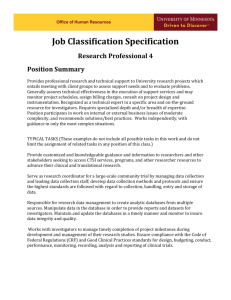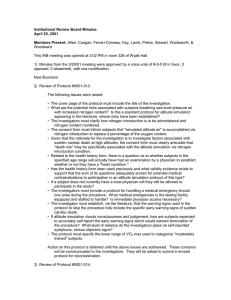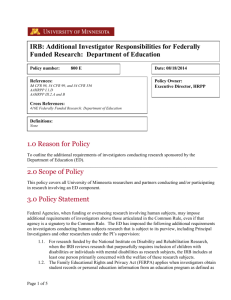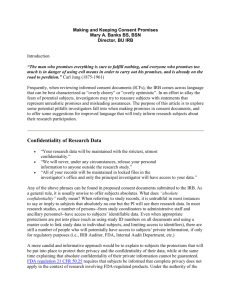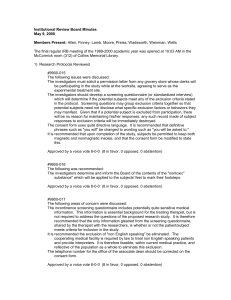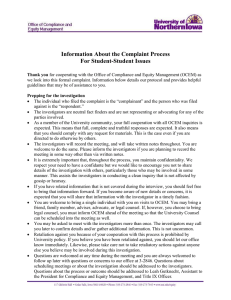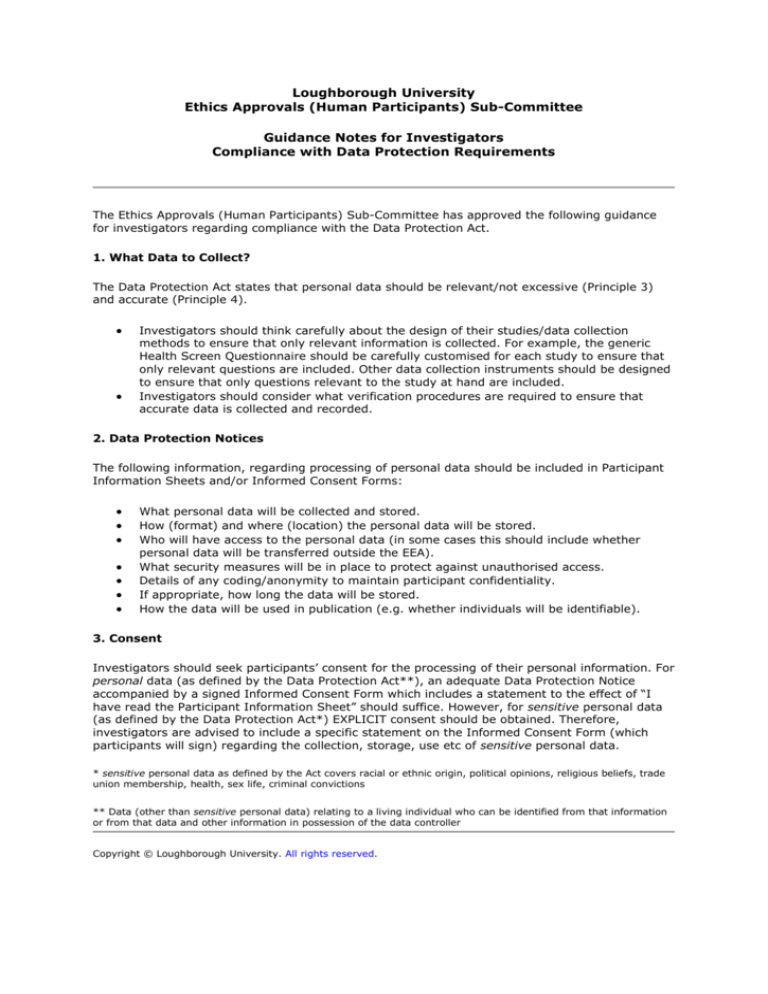
Loughborough University
Ethics Approvals (Human Participants) Sub-Committee
Guidance Notes for Investigators
Compliance with Data Protection Requirements
The Ethics Approvals (Human Participants) Sub-Committee has approved the following guidance
for investigators regarding compliance with the Data Protection Act.
1. What Data to Collect?
The Data Protection Act states that personal data should be relevant/not excessive (Principle 3)
and accurate (Principle 4).
Investigators should think carefully about the design of their studies/data collection
methods to ensure that only relevant information is collected. For example, the generic
Health Screen Questionnaire should be carefully customised for each study to ensure that
only relevant questions are included. Other data collection instruments should be designed
to ensure that only questions relevant to the study at hand are included.
Investigators should consider what verification procedures are required to ensure that
accurate data is collected and recorded.
2. Data Protection Notices
The following information, regarding processing of personal data should be included in Participant
Information Sheets and/or Informed Consent Forms:
What personal data will be collected and stored.
How (format) and where (location) the personal data will be stored.
Who will have access to the personal data (in some cases this should include whether
personal data will be transferred outside the EEA).
What security measures will be in place to protect against unauthorised access.
Details of any coding/anonymity to maintain participant confidentiality.
If appropriate, how long the data will be stored.
How the data will be used in publication (e.g. whether individuals will be identifiable).
3. Consent
Investigators should seek participants’ consent for the processing of their personal information. For
personal data (as defined by the Data Protection Act**), an adequate Data Protection Notice
accompanied by a signed Informed Consent Form which includes a statement to the effect of “I
have read the Participant Information Sheet” should suffice. However, for sensitive personal data
(as defined by the Data Protection Act*) EXPLICIT consent should be obtained. Therefore,
investigators are advised to include a specific statement on the Informed Consent Form (which
participants will sign) regarding the collection, storage, use etc of sensitive personal data.
* sensitive personal data as defined by the Act covers racial or ethnic origin, political opinions, religious beliefs, trade
union membership, health, sex life, criminal convictions
** Data (other than sensitive personal data) relating to a living individual who can be identified from that information
or from that data and other information in possession of the data controller
Copyright © Loughborough University. All rights reserved.




